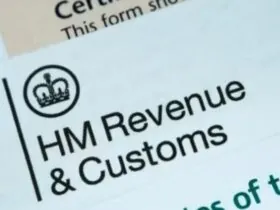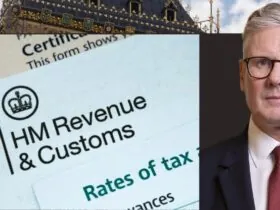As the self-assessment tax return deadline for the 2023/2024 tax year approaches, HM Revenue and Customs (HMRC) has issued a reminder to taxpayers about the consequences of missing the January 31, 2025, deadline. Despite over 7.4 million individuals already filing their returns, many others are yet to take action, putting them at risk of fines and penalties.
Key Deadlines and Penalties for Non-Compliance
This Article Includes [hide]
In the Published article by Birminghammail.co.uk, Failing to file a self-assessment tax return on time can result in several penalties, even if no tax is owed. The initial penalty is a fixed £100 fine, applicable immediately after the deadline. Penalties then increase as the delay continues:
- Three months late: Daily fines of £10, up to a maximum of £900.
- Six months late: An additional charge of 5% of the tax due or £300, whichever is greater.
- Twelve months late: A further 5% of the tax owed or £300, whichever is greater.
In addition to these penalties, interest is charged on unpaid taxes, and there are separate penalties for late payment, which are calculated as 5% of the outstanding amount at 30 days, six months, and twelve months.
Who Needs to File a Self-Assessment Tax Return?
Self-assessment is not limited to business owners or the self-employed. According to HMRC, individuals must file a tax return in several circumstances, including:
- Being newly self-employed with a gross income exceeding £1,000.
- Earning less than £1,000 but choosing to pay Class 2 National Insurance Contributions to maintain state pension or benefit entitlements.
- Joining a business partnership as a new partner.
- Receiving untaxed income exceeding £2,500.
- Being subject to the High Income Child Benefit Charge, applicable when either the individual or their partner earns over £50,000.
How to Register for Self-Assessment
First-time self-assessment filers must register with HMRC to obtain a Unique Taxpayer Reference (UTR). This process can take up to 10 working days, so it is important not to delay. Registrations can be completed online through HMRC Online Services or the HMRC app.
Support Available for Taxpayers
HMRC is encouraging individuals to seek support early if they are unsure about the filing process. Myrtle Lloyd, HMRC’s Director General for Customer Services, emphasizes that ample resources are available to simplify tax return submission. Taxpayers can access step-by-step guides and additional help by searching “help with self-assessment” on the GOV.UK website.
Why Filing on Time Matters
Submitting your tax return on time is crucial to avoid penalties and ensure compliance with UK tax laws. Procrastination could lead to financial strain due to mounting fines, interest charges, and late payment penalties. By acting now, individuals can avoid unnecessary stress and penalties while ensuring their tax obligations are met efficiently.




Leave a Reply